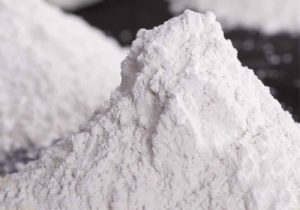
CP-10 Organoclay
CP-10 organoclay is a rheological additive made of organoclay. It is used in non-polar to moderately polar aliphatic and other solvent systems
Organophilic Bentonite: Do you have a drilling project that requires mud system control?
Camp Shinning bentonite is a type of organophilic bentonite that is not found elsewhere. It can stabilize drilled cuttings and suspend solids in drilling fluid, which can lead to increased well productivity.
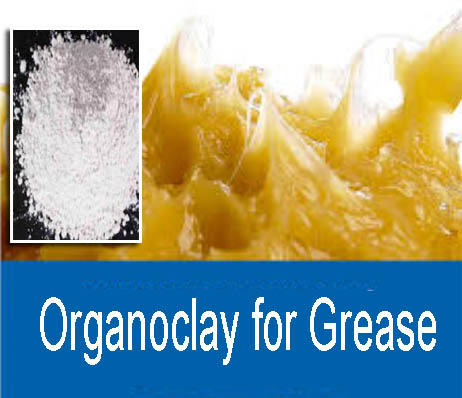

CP-10 organoclay is a rheological additive made of organoclay. It is used in non-polar to moderately polar aliphatic and other solvent systems

CP-MPZ organoclays is an modified bentonite that is used in solvent and resin systems ranging from non-polar to highly polar.

The CP-MPS rheology modifier is a type of organo clay rheological additive that is used in solvent and resin systems ranging from non-polar to high polarity.
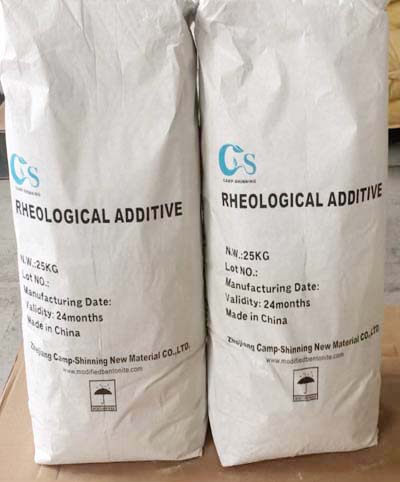
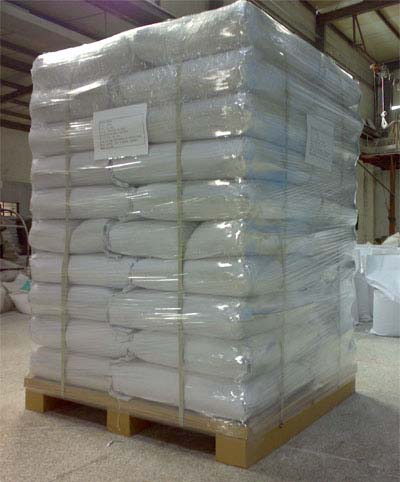
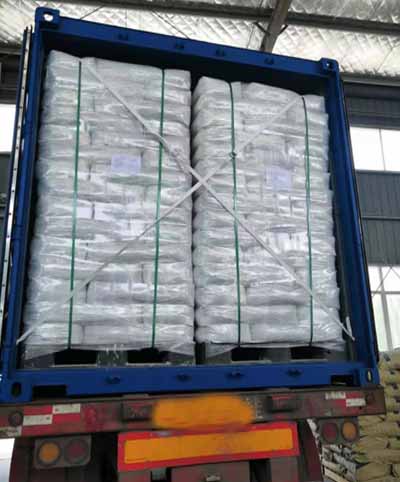
Organoclay Supplier / Manufacturer :
Internet address: https://www.rheologymodifiers.com/
Email address: [email protected]
Whatsapp / Wechat: +86-13185071071
Organophilic Clay Supplier / Manufacturer :

CP-EW Organoclay for Water Based paint. It is primarily employed in water borne paint systems,such as latex paint. So it is a good water based additive in paints,coatings,grease etc.

CP-EWS Modified bentonite It is employed in a water-borne coatings system. CP-EWS organoclay outperforms CP-EW in terms of thixotropy, transparence, and dispersion.

CP-WBS Rheology Modifier is rheological modified bentonite. It is mostly employed in water-borne systems.


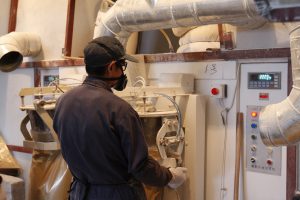
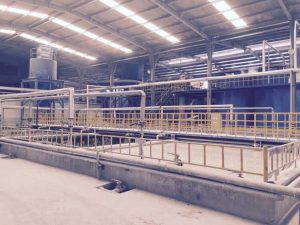

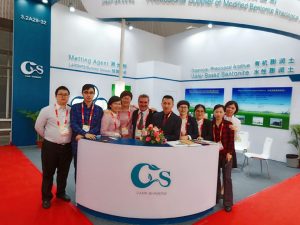
The Organoclay bentonite | Organophilic clay -specialized Zhejiang Camp-Shinning New Material CO.,LTD. and Hangzhou Camp-Shinning CO.,LTD. are subsidiaries of Camp-Shinning.
Camp-shinning concentrated on high value-added, high-technology organo bentonite series products, particularly in research, development, manufacturing, and sales of organic (solvent based organoclay) and inorganic bentonite (water based organoclay).
Our Organophilic bentonite clay finds widespread application in oil drilling mud, paint, coating, lubricating grease, adhesive, construction mortar, cosmetics, and waste water treatment, among other applications. A group of world-class professional users and distributors, such as SUN CHEMICAL,,SIEGWERK,LEHMANN &VOsS, and others, have acknowledged our dependable quality.
Current annual production of organic bentonite clay | organoclay is 20,000 metric tons, while refined bentonite production is 15,000 metric tons.
Our ISO 9001 quality system certification and IS014001 environmental management system certification, as well as our own mine with superior ore quality and production of proprietary technology, ensure the long-term quality and supply stability of our Organoclay bentonite | Organophilic clay.
Our mission is to provide users with superior Organoclay bentonite | Organophilic clay and services and to collaborate with them to achieve success and glory.
Internet address: https://www.rheologymodifiers.com/ and email address: [email protected]
Whatsapp / Wechat: +86-13185071071
Organoclay | Organophilic Clay CP-2 also named amine treated Bentonite.
In diesel oil based fluids,organophilic clay viscosifier CP-2 are used to increase carrying capacity and suspension properties, providing support for weight materials and improved cutting removal. Organophilic bentonite also aids in filter-cake formation and filtration control.
Properties
Composition Organically modified bentonite clay
Physical appearance Off white to tan free-flowing powder
Moisture content (105℃,2hr) ≤4%
Particle size (<76μm or 200mesh) ≥95%
Specific Gravity 1.6-1.8
Advantages
Effective viscosifier and gellant
Aids control of fluid loss to the formation
Increases emulsion stability
Improves cuttings carrying and hole cleaning capacity
Suspends weighting materials and other solids
Confers temperature stability to the fluid
Application
Base oil:
Diesel Oils
Crude Oils
Mineral Oils
Synthetic Oil
Viscosifying drilling Fluids:
Oil based drilling fluids
Invert emulsion fluids
Workover fluids
Completion fluids
Casing packs
Packer fluids
Spotting fluids
Package
Organoclay | Organophilic Clay CP-2 is packed in 50lb(22.7kg) or 25kg/bag or customized,multi-wall paper sacks or Kraft paper bag with PE liner or customized.
Storage
CP-2 Store in a dry, well-ventilated area with temperature of 0℃-30℃. Keep container closed. The quality guarantee period is 24 months.
Notice
The information on use is based on data which are believed reliable, but any recommendation or suggestion made is without guarantee or warranty, since the conditions of use are outside our control. All products are sold on the conditions that purchasers shall make their own tests to determine the suitability of such products for their purpose and that all risks are assumed by user. We disclaim any responsibility for damages resulting from careless or improper handling or use. Nothing herein is to be taken as permission, inducement or recommendation to practice any patented invention without a license.
Internet address: https://www.rheologicaladditive.com/ and email address: [email protected]
Whatsapp / Wechat: +86-13185071071
Organophilic Bentonite
Organophilic Bentonite :
Organo Clay Thickening Agent
Organophilic Bentonite,Organo clay, sometimes known as clay thickener, is a fluid-thickening material. It is composed of mineral-based clays such as bentonite, hectorite, and montmorillonite and is processed to be compatible with organic compounds.
It is a solid with a low melting point that is commonly used in high-temperature greases.
In order to exfoliate clay platelets, the organoclay product must be washed in deionized water and then soaked in excess quaternary amine. This increases the organoclay’s affinity for hydrophobic organic molecules and decreases its affinity for hydrophilic organic chemicals.
The exfoliation procedure produces clay plates with an enhanced dispersion of clay layers in a continuous polymer matrix. The phase homogeneity of these composites is also superior to that of intercalated clays.
In addition, these materials have enhanced chemical resistance, dimensional stability, and thermal stability.
Organoclay is produced when bentonite clay reacts with a quaternary ammonium salt. Bentonite is a clay mineral with an exchangeable cation structure and a platelet-like structure.
It arises spontaneously as aggregations of several stacks. Clay platelets are exposed to quaternary amines, which induce reactivity and dispersibility in the clay.
Attachment of a water-soluble onium cation to the surface of the clay is required by current methods for producing organoclays employing water-based systems. These reactions are restricted by the number of ion exchange sites on the surface of clay.
Due to this restriction, organic modifying agents often have limited coverage, leaving the surface unaltered.
The organoclay that has been exchanged for sodium is subsequently transported in a polymer-rich liquid phase. Before mixing with the polymer-rich phase, it is imperative that the clay feed be crushed to the proper size.
This will ensure that the clay platelets are completely disseminated and that the polymer adheres to the clay’s surface.
Polymeric functionalization of clay
The functionalization of clay with polymers is an effective method for enhancing the clay’s characteristics.
These nanocomposites of clay and polymer exhibit enhanced mechanical and rheological characteristics. They are suitable for usage as structural and adsorption materials. In this study, the tensile properties of clay nanocomposites were evaluated, along with the impacts of polymer-clay interaction.
Moreover, the clay-polymer nanocomposites are resistant to abrasion and wear, and their chemical resistance is improved.
In recent years, the integration of polymers into clay nanocomposites has received substantial interest.
This composite is a naturally occurring material with significantly enhanced mechanical and thermal properties. Clay’s surface area is a crucial aspect in this interaction.
Clays are naturally incompatible with the majority of organic polymers. During the polymer-forming reaction, clay layers are exfoliated to change clay and polymer-clay nanocomposites.
Organoclay utilization in drilling fluids
Organophilic Bentonite can be added to drilling fluids to enhance the fluid’s rheology.
Their rheological qualities can improve and prevent the failure of drilling fluids. This article will address the advantages and disadvantages of utilizing organoclays in drilling fluids.
Formulated organoclay-diesel oil suspension viscosity and rheological characteristics were evaluated. As a result of its high thixotropy loop area, it can be utilized as a viscosity booster.
Drilling fluids based on organoclays have greater equivalent circulating densities, resulting in decreased downhole mud loss.
Organophilic Bentonite have use as polymer nucleating agents and viscosifying agents. They have a high surface area, a low molecular weight, and are applicable in a variety of settings.
They are appropriate for oil-based drilling fluids due to their hydrophobic chains and huge surface area. Additionally, they can be utilized to thicken organic compounds.
Organophilic Bentonite are frequently employed as surfactants in drilling fluids. They alter the clay’s colloidal state and decrease its surface tension.
Additionally, they can be employed as emulsifiers, wetting agents, and foaming agents. As a result, individuals can better control fluid loss.
The composition of drilling fluids is a complicated mixture of chemicals, solids, and water. A drilling fluid must perform various roles during drilling operations in order to be effective. It must be dispersible and have a broad temperature range.
Additionally, additives and thickening agents are required. All of these qualities necessitate detailed chemical analyses and calculations.
Organoclay Supplier / Manufacturer :
Internet address: https://www.rheologymodifiers.com/
Email address: [email protected]
Whatsapp / Wechat: +86-13185071071
Organophilic Clay Supplier / Manufacturer :

CP-180 organoclay is an organo clay rheological additive (modified montmorillonite) designed specifically for use in solvent-based systems

CP-34 organoclay is a modified bentonite that has been specifically designed for use in solvent-based systems.

CP-EDS modified bentonite is a kind of organo clay rheological additive. It is used in systems of medium polarity and high polarity system.

CP-992 Organophilic Clay, the wet process improved viscosifier and gelling agent . It is a rapidly dispersing.

CP-982 Organophilic Clay is an amine treated bentonite with a moderate temperature performance.

CP-150 Organophilic Clay is a self-activating organoclay that disperses easily and performs well in diesel, low aromatic mineral oil, modified vegetable oil, and synthetic base fluid formulations.
Organophilic Bentonite